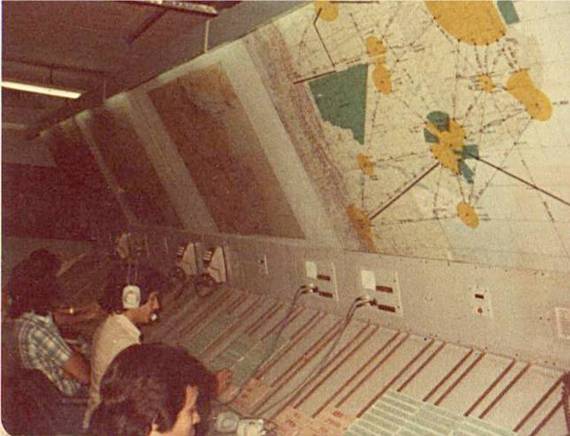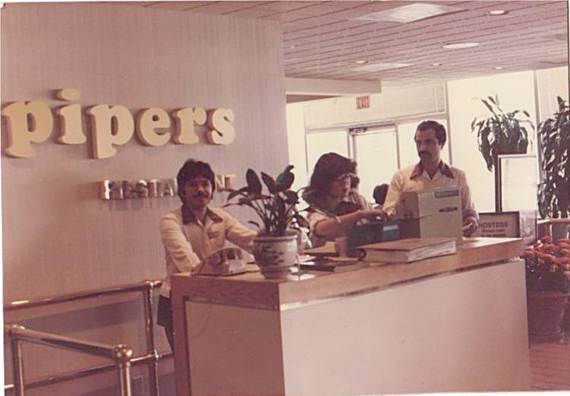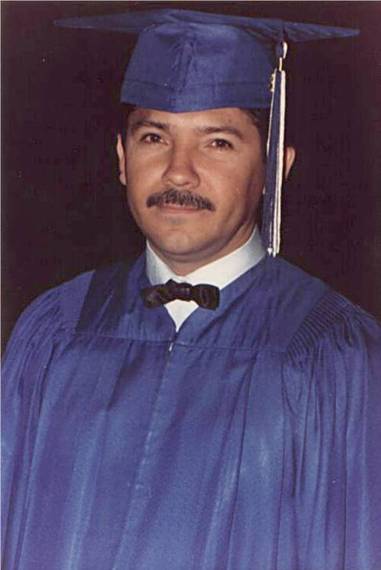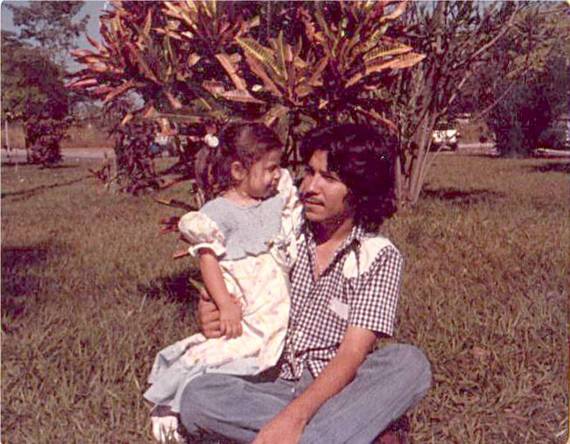In 1980, my family and I fled civil war in El Salvador. Though I was too young to remember, the transition was significant for my father. Against all odds, in his 20s, he had been among a handful of people selected to train in South America to become air traffic controllers. Knowing his perfectionist tendencies and his love of technology, I can imagine how much he valued this job. The move to the United States, though it made our lives more stable at the time, cut short his promising career.
Once in Los Angeles, with my uncle's help, he took the first job he could find as a busboy in a hotel restaurant. My family was fortunate to have a place to stay, a floor to sleep on, for the better part of our first year here. When they saved enough from my dad's busser and my mom's garment factory wages, we moved into a tiny single apartment on Rampart, off of 6th street with my aunt and her family. They started off with very little. My dad, multitalented and meticulous at everything, including pool, used the skills he had picked up in Salvadoran pool halls to supplement his income by betting against unsuspecting rivals. He also won most of our first dinnerware set from the Santa Monica Pier coin toss carnival game.
True to his identity, he was a dedicated and efficient busser, quickly moving up to a server position. As a child, I don't recall him ever complaining about his job, but once, when I was in 7th grade and he was enrolled in community college classes, he asked me to proofread one of his English essays. In it, he described the deep internal struggle he had lived, having to accept that he would never again use his professional training. He had given up his occupational status to keep us safe and he was figuring out how to give meaning to his work life. As is often the case in immigrant families, we continued on with our lives without discussing the topic again.
In 2004, during a visit to El Salvador, I learned from his childhood friends that my dad had been accepted to the University of El Salvador (UES) shortly before we left the country. His friends, who had also grown up poor and were now solidly upper middle class, joked that my father was the smartest among them. He had the potential to go so far, they said. Being admitted to the prestigious university was no small feat for someone from a poor background and I was initially saddened to think of everything that could have been, everything he gave up.
I've since gained perspective. When I was doing research for one of my projects, I interviewed a few of his co-workers at the hotel -- other servers and some of the housekeepers. They spoke so highly of him and of the many times he had demanded respect for himself and for them.
My dad understood early on that having a union job was important. Even with little pay, he had benefits -- especially health insurance -- that made our lives stable, kept us out of debt, and minimized our stress. Because of his union job, my mom was able to stay home with us, keep us away from danger in our neighborhood, and I, as the oldest child, didn't have to work to help cover household expenses.
More importantly, being a member of the union is how my dad gave meaning to his new lot in life. As a server and a shop steward for the union, he was the go-to person for labor complaints and strategy sessions. Having survived the perils of war, he didn't fear the mere loss of a job and he valued the freedom to call out injustice when he saw it. The multiple times he was offered management jobs, he refused. He was more interested in improving conditions for everyone. Whether it was against unfair firings, or for higher wages, sufficient breaks, lower co-pays, or fewer rooms to clean, he organized and fought back. He had the courage to stand up against management but also against the union itself when they weren't doing right by the workers. He organized strikes and attended picket lines not just at his hotel, but at several others around the city. While providing for us, he was making his mark.
He worked for over 30 years at the Holiday Inn/Luxe Hotel in Downtown L.A. Through his leadership and participation in collective action, he has contributed to the labor movement history being created by this wave of Latino immigrants in the city. Today, he is a server at another hotel restaurant and still a member of the union. On the eve of his 60th birthday, I pause to honor my father. He helped me with my math homework, taught me to ride a bike, play baseball, and appreciate the music of Pink Floyd, Carlos Santana, Cat Stevens, Rubén Blades, and Joan Manuel Serrat. He challenged me to be the best at what I do, regardless of where I am. But the biggest lesson he taught me is that we can find the most meaning in this country by fighting collectively for our rights and those of others.




